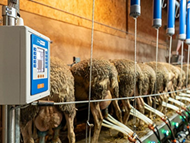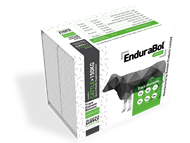|
|  |
|
May 21, 2024
|
|
UK - AHDB Launches Environmental Baselining Pilot
Dairy farmers are encouraged to join a new pilot launched by AHDB, to individually baseline up to 170 farms across Great Britain.
AHDB is investing £2.5m, with the long-term vision to create the opportunity for a nationwide standardised data set across the beef and lamb, cereals and oilseeds, dairy and pork sectors, that brings integrity to the industry and enables more accurate reporting of emissions and the environmental impact of agriculture.
This pilot will fund a comprehensive environment baseline for all participating farms and support them with acting on the results. From considering your farm's emissions alongside carbon sequestration to seeing how and where water runs off your land, this baseline data will tell you where your farm is today and where you can make improvements.
Baselining will give you the confidence, along with 1–1 support, to make changes to improve efficiency, build resilience to increasing change and, together, tell the real story of farming and its relationship with the natural world.
The pilot is open to all levy-paying farmers and growers in UK cereals and oilseeds, Great Britain (GB) dairy, and beef, sheep and pork in England and Scotland, and we are working with QMS on this project.
AHDB and QMS are currently in the process of recruiting farms to join the pilot project. More information, including an expression of interest form can be found at www.ahdb.org.uk/baselining.
The deadline for expressing your interest in getting involved is Sunday 30 June 2024.
|
|
|
|
|
UK - How to improve feed efficiency
Fibre digestibility is a key driver of feed efficiency, animal performance and profitability. Recent strides in scientific understanding, alongside new nutritional technology, are enabling producers to directly improve this with minimal effort.
The most unique characteristic of a dairy cow is her rumen, the large fermentation vat which utilises microbes to convert the feed she consumes into the nutrients she needs. She is able to take feedstuffs that other animals, including humans, cannot use and extract nutritive value from them to produce milk.
But according to Huw McChonochie, Dairy Nutritionist at Zinpro, this begs the question: Are we making the most of this unique functionality, particularly when it comes to maximising protein efficiency in our dairy cows?
"In recent years, much of the focus of protein nutrition has been on feeding ingredients that bypass the rumen, but we can't ignore the benefits that come from feeding the rumen correctly," he says. "First, we must understand how the rumen functions, and while this may seem like an old story for many nutritionists, there are new insights. As we know, fibre-digesting bacteria break down forages to make volatile fatty acids (VFAs) and microbial protein, which the cow then utilises to make milk, replenish her energy stores and/or to supply nutrients to her growing foetus."
But what is less well-known is that fibre-digesting bacteria rely upon amylolytic, or starch- and sugar-digesting bacteria, to complete the breakdown of rumen degradable protein (RDP) into peptides, amino acids and branched-chain amino acids (BCAAs). The same bacteria then remove the amino and carboxyl groups, releasing branched-chain volatile fatty acids (BCVFAs or isoacids).
"In other words, the rumen breaks down RDP through a complex process, eventually producing isoacids which are required by rumen bacteria for fibre digestion," he explains "Isoacids are formed when the branched-chain amino acids (leucine, isoleucine and valine) which are contained in high RDP feedstuffs like soyabean, rapeseed, cottonseed or sunflower meals, are degraded in the rumen. The isoacids are then utilised by both amylolytic and fibre-digesting bacteria to produce microbial protein."
Isoacids act as carbon sources to be utilised with highly digestible protein to produce the much-needed microbial protein and energy for milk production by the mammary gland. When the cow produces higher levels of isoacids, both the fibrolytic and amylolytic bacteria respond by increasing digestion of both fibrous and non-fibrous carbohydrate feed components. "This increases the microbial efficiency of producing energy and protein," comments Huw.
Read the full story in the May edition of British Dairying.
|
|
|
|
|
Your Voice Matters; represent the Dairy industry at AHDB
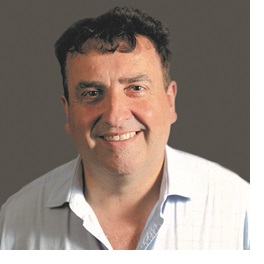 The AHDB is recruiting for Council members for the Dairy sector. Lyndon Edwards AHDB Board Member & Sector Chair (Dairy) said "Working with the AHDB you won't just be helping fellow farmers produce dairy products and looking after the environment. You'll be shaping the future of our food production and leaving a legacy for the next generation."
The AHDB is recruiting for Council members for the Dairy sector. Lyndon Edwards AHDB Board Member & Sector Chair (Dairy) said "Working with the AHDB you won't just be helping fellow farmers produce dairy products and looking after the environment. You'll be shaping the future of our food production and leaving a legacy for the next generation."
Appointments are for three year terms, starting in November 2024. The role requires a commitment of up to two days a month, including attendance at dairy sector council meetings. Dairy professional's from across the sector are invited to apply and there is a particular requirement for someone from Wales.
To Find out more and to apply for the role, visit the AHDB Careers site: Careers.ahdb.org.uk
|
|
|
UK - 2023 throughput figures and values show live auction ring is the farmers' choice
Latest throughput figures released by the Livestock Auctioneers' Association (LAA) show that the popularity of the live auction system continues to grow, with more numbers in most sale categories being sold in 2023 compared to 2022, despite reduced numbers in the national breeding herds and flocks. Store and breeding cattle, dairy cattle, calves, prime sheep and cull ewes all saw increased numbers sold through the live ring, with prime cattle and cull cows remaining largely similar to the previous year. Overall turnover across England and Wales reached well over £2.2 billion, up nearly £115 million on the year, demonstrating the significant rise in values being achieved at the live auction market. Total throughput figures of all classes of livestock through livestock markets 2023 (England and Wales): Store and breeding cattle (incl. dairy) - 756,000; calves - 251,000; finished cattle - 261,000.
While numbers overall have remained consistent and encouraging across most categories, despite industry challenges across the year, the true story has been in the prices achieved. Store cattle prices rose 8% in England and 10% on the year in Wales, while prime cattle saw an 11% upturn in England, equating to an extra £177 per head. Dairy cattle prices followed a similar trend, up 13% in England and 7% in Wales, or an extra £176 or £84 respectively.
LAA
|
|
|
|
|
UK - AHDB Talking Leaders: Leadership is a momentum game
Book your space now for a live broadcast with Graham Wilkinson, CEO of AHDB, to hear about his first 90 days in office.
Much like the pressure faced by business executives and even presidents, Graham's early actions will have a disproportionate impact on AHDB's trajectory.
We will reflect on his initial challenges, accomplishments and the lessons learned during this crucial period.
Hear Graham's vision and plans as he he promises to remain levy-payer obsessed, recognising that a renewal of trust, leadership and responsibility is crucial to propel AHDB forwards to play a crucial role in the UK's agricultural future.
Join us on Friday, 24 May 2024 from 11:30am - 12:30pm as we delve into Graham's reflections and plans to propel AHDB forward, grounded in expertise, strong business acumen and innovation.
AHDB
|
|
|
UK - LEAF Open Farm Sunday
This year's Open Farm Sunday takes place on 9 June 2024, and it is an opportunity for members of the public to learn more about farming and the countryside. It is also a chance for farmers to talk about what they're so proud of - British food and farming. AHDB is proud to be a sponsor of this fantastic event. Each event is unique, as each farm is different and every farmer too, but what they all share is a passion for farming and telling their story, amazing expertise, and a commitment to farming with nature.
If you would like to get involved, find out more here
AHDB
|
|
|
UK - Arla Foods has announced that it will invest over £300 million across five of its UK sites
This commitment, revealed during the UK Farm to Fork Summit at Downing Street, underscores Arla's mission to enhance British dairy production and support the nation's food security. The investment will benefit Arla's facilities in Lockerbie, Stourton, Aylesbury, Westbury and Taw Valley. These upgrades aim to modernise and expand the company's production capabilities, ensuring the continued production of high-quality dairy products and bolstering the UK's position in the global food market.
Bas Padberg, MD of Arla Foods UK, said: "What this means is that our farmer owners are investing in UK food security - as they are not only producing our milk, but they are backing this investment in our production sites".
He continued: "Dairy plays a significant role in the UK economy, with sales of dairy products exceeding £8 billion. On the day of the Farm to Fork Summit we are delighted to set out plans for continued vital investment in our business worth tens of millions of pounds, ensuring the UK remains at the forefront of food production and keeping the nation's favourite dairy products on our supermarket shelves."
The cooperative, owned by thousands of European dairy farmers, including approximately 2,000 in the UK, operates nine production sites nationwide. The planned upgrades will secure the future of these sites, enabling them to produce world-class products and add maximum value to the milk supplied by its farmer owners. The investment in Taw Valley, for example, aims to capitalise on global export opportunities.
The Lockerbie Creamery will see new technology and significant upgrades, allowing it to expand its cheddar production. In Stourton, the investment will enhance Arla's capabilities in extended shelf life milk production, particularly for the Cravendale and BoB brands, and introduce milk in cardboard cartons. This will result in enough additional milk to fill 560 million bowls of cereal. Aylesbury, the UK's largest fresh milk site, will receive new automated box packing capabilities, providing customers with greater packaging flexibility. Meanwhile, the Westbury site will focus on turning milk into powder for global consumption.
FoodBev.com
|
|
|
UK - King Charles lll becomes RABDF's New Patron
The Royal Association of British Dairy Farmers (RABDF) is delighted to announce His Majesty King Charles III as its new Patron. The King, who has a longstanding interest in British farming and a passion for the environment, succeeds the late Queen Elizabeth II in his patronage.It follows a review of more than 1,000 royal patronages since the King ascended to the throne in 2022, bringing the total number he holds to 669.
Commenting on the news, RABDF Chairman Robert Craig said, "It means so much to us as a charity that His Majesty The King has announced he will take on the patronage of our charity."His late mother was our Patron for many years, and we are delighted that the monarch is carrying on in that role."
The RABDF has a long-established relationship with the Royal Family, providing vital publicity and recognition for the work of the Association and the dairy industry.The Royal Family has supported many dairy awards organised by the RABDF, including the Princess Royal Award, Royal Dairy Innovation Award and the former Prince Philip Award, which recognises excellence within the industry.
AHDB
|
|
|
|
|
US - Mars invests USD47 million in sustainable dairy initiative
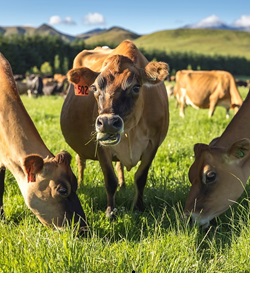 Mars, Inc. revealed it is investing USD47 million in a sustainable dairy plan as part of its broader climate strategy, which totals USD1 billion over a span of three years. Mars shared it is working to reduce the carbon footprint of its dairy line with its climate-first approach to dairy sourcing, which it is calling "Moo'ving Dairy Forward." The commitment, highlighted by partnerships with FrieslandCampina and other companies, aligns with the company's goal to cut emissions by 50% by 2030, as measured against a 2015 baseline.
Mars, Inc. revealed it is investing USD47 million in a sustainable dairy plan as part of its broader climate strategy, which totals USD1 billion over a span of three years. Mars shared it is working to reduce the carbon footprint of its dairy line with its climate-first approach to dairy sourcing, which it is calling "Moo'ving Dairy Forward." The commitment, highlighted by partnerships with FrieslandCampina and other companies, aligns with the company's goal to cut emissions by 50% by 2030, as measured against a 2015 baseline.
The company said it will work with industry leaders "to implement a host of meaningful on-farm interventions focused on critical areas such as enteric methane reduction, efficient manure management and sustainable feed production."
More than 200,000 dairy cows and 1,000 farms supply the manufacturer's billion-dollar confectionery business, which includes M&M's and Snickers. The company identified dairy as the second largest contributor to the carbon footprint of its snacking business and said raw ingredients account for more than 70% of its total GHG emissions.
The dairy sustainability plan involves Mars collaborating with dairy cooperative FrieslandCampina. Mars said through the partnership a group of farms will be dedicated to Mars' dairy supply. With an emphasis on more sustainable dairy, Mars said the program will involve innovative practices and technologies that can be refined and scaled up "in a focused and accelerated environment." The goal is to identify practices that can be adopted throughout the cooperative.
FoodBusinessNews.net
|
|
|
Ireland - EUR3m guide price for 190-acre dairy farm in the Golden Vale
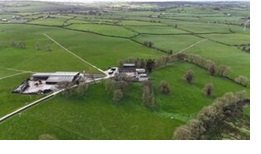 A superb 190-acre dairy farm in the Golden Vale represents a golden opportunity so it isn't any surprising that it is going up for public auction. The property is Clare House at Kilcolman near Newcastle West, County Limerick. GVM Auctioneers will be holding the auction at their premises on Glentworth Street in Limerick city centre on Wednesday, May 29. "It's a top-class farm that's been nurtured and developed over many years," said selling agent Tom Crosse. "It's an excellent platform for dairying, beef or equestrian enterprises.
A superb 190-acre dairy farm in the Golden Vale represents a golden opportunity so it isn't any surprising that it is going up for public auction. The property is Clare House at Kilcolman near Newcastle West, County Limerick. GVM Auctioneers will be holding the auction at their premises on Glentworth Street in Limerick city centre on Wednesday, May 29. "It's a top-class farm that's been nurtured and developed over many years," said selling agent Tom Crosse. "It's an excellent platform for dairying, beef or equestrian enterprises.
"It has been very well cared for over time, and it has very good soil quality. It's really not often at all that you get a farm like this one - in Limerick or anywhere else in Munster. It's quite special. There are lovely trees on the way into it along a sweeping driveway. It's like parkland. It's a very classy place all round."
The dwelling dates from the 1870s; a substantial five-bedroom home that has also been very well maintained, with a courtyard with cut-stone stores and sheds. Outbuildings include a 16-unit herringbone milking parlour, large open sheds with easy-feed passageway, silage apron, calf shed, hay shed and cattle crush. The property will be presented in a choice of five lots (including the entire), with a price guide of EUR3,000,000 (EUR15,800/acre).
IrishExaminer.com
|
|
|
|
|
US: Country to spend USD200m to contain bird flu spread on dairy farms
The Biden administration has announced that it will provide around USD200 million to fight the spread of avian flu (HN51) among dairy cows. This is the US government's latest attempt to contain outbreaks of the flu, which have fuelled concerns in the country regarding human infections with the HN51 virus.
Scientists think that the outbreak, which has been detected in nine states among dairy cattle since late March, is more widespread than initially perceived. This is due to US Food and Drug Administration (FDA) findings of H5N1 particles in about 20% of retail milk samples. Health experts have cautioned against the consumption of raw milk but said pasteurisation appears to kill the virus.
The FDA will donate USD8 million to ensure the safety of the commercial milk supply. The US Department of Agriculture (USDA) has announced that it will make USD98 million available - providing up to USD28,000 per dairy farm - for efforts to contain the spread of the virus between animals and humans and for testing milk and animals for the virus.
The Department of Health and Human Services (HHS) said it would provide USD101 million through the FDA and US Centers for Disease Control and Prevention (CDC) to protect public health and the nation's food supply. This includes USD34 million through the CDC for testing efforts and supporting public health labs, USD8 million for vaccines and USD3 million for wastewater surveillance.
In April, the USDA started requiring lactating dairy cows to test negative before being shipped across state lines, in order to limit transmission in cattle. In the first week of the order, USDA laboratories reported 905 tests, of which 112 were presumptive positives, a USDA spokesperson told Reuters. The figure could include samples that were tested more than once or those collected for other purposes such as research studies, the spokesperson said.
FoodBev.com
|
|
|
Latvia - Co-operation a must to receive adequate pay
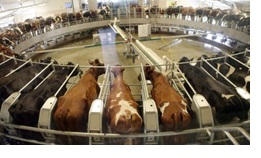 The only way for the dairy industry to receive adequate pay for milk is cooperation, said Piena logistika dairy farmers' cooperative Janis Locmelis in an interview to LETA. He said the cooperative has more than 100 milk farms that produce 330 tonnes of milk every day. This amounts to 13-15% of the total volume of fresh milk in Latvia.
The only way for the dairy industry to receive adequate pay for milk is cooperation, said Piena logistika dairy farmers' cooperative Janis Locmelis in an interview to LETA. He said the cooperative has more than 100 milk farms that produce 330 tonnes of milk every day. This amounts to 13-15% of the total volume of fresh milk in Latvia.
Locmelis said there are long-term contracts signed for approximately 80% of the volume of milk produced daily. Long-term contracts ensure milk producers are able to work in a predictable and stable manner, as well as dictate prices in accordance with the average price in the EU. "This way we can avoid SPOT markets, where we have to fight for milk prices every three weeks and think where we can sell milk or where to put it. We would rather reduce these risks. This is why we prefer long-term contracts," said the Chairman of the Council of Piena logistika.
"It is just as important to raise the efficiency of individual farms. We are working on helping dairy farms become more efficient, to automate and modernise production processes. While we produce 15% of Latvia's total fresh milk volume nowadays, we would like to at least double this volume in the future," said Locmelis.
Bnn-news.com
|
|
| |
|
|
|
BouMatic is innovating in sheep milking
With a brand new automatic detacher system developed specifically for sheep milking. To meet the specific needs of dairy sheep farmers, BouMatic has developed a brand new automatic milking cluster detacher system, operating on a timer. 'Drawing on our technical expertise and experience in sheep milking, we offer a modern, simple and effective solution to meet the needs of high-performance sheep farms.' OviTIMER stands out on Ergonomics - Simplicity - the OviTIMER LED button provides clear information - Compatibility - OviTIMER is compatible with most existing installations and easily adapts to different parlour configurations and cluster types.
|
|
|
|
|
|
More investment for All things Butter
Six months since launch, British butter brand, All Things Butter, co-founded by chef Thomas Straker and Toby Hopkinson, has closed a seed funding round securing £2.2 million of investment. The round follows successful launches in Sainsbury's, ASDA and Ocado, and aims to fuel further roll out into additional national retailers and establish an international supply chain. The latest investment follows a round of pre-seed funding in September 2023 of over £530,000. The brand donates 1% of its revenue to farming charity RABI. The butter is made on Brue Valley Farm, where the same family has been churning butter for generations. All Things Butter uses a unique approach where its British cream is churned not once, but twice, resulting in a fresh and exceptionally creamy butter.
|
|
|
|
|
|
New organic mineral bolus launched
Nettex has announced the release of the first organic EnduraBol bolus which will offer six trace elements in a resin coated formulation, providing up to six months of supplementation with a measured release rate. "This new bolus is approved by Organic Farmers and Growers and is suitable for those farming under Soil Association guidelines. The formulation provides high levels of iodine, copper, selenium, cobalt, zinc and manganese to help balance potential deficiencies. The bolus has been designed with single point erosion to enable a consistent and measured release of nutrients over a 180-day lifespan. " A small circle at the end of the bolus releases the minerals more evenly than if the whole surface were to erode. This also ensures the bolus continues to deliver the optimum release of nutrients throughout the whole period." Nettex
|
|
BRITISH DAIRYING
ENSURE YOU RECEIVE EVERY COPY
British Dairying is available by subscription at £70.00 posted to UK addresses,
£90.00 for Europe, £115.00 for the Rest of the world
or £30 +VAT for British Dairying Online only
|
|
| |
QUOTE
"Sometimes things fall apart, so that better things can fall together."
"Imperfection is beauty, madness is genius and it's better to be absolutely ridiculous than absolutely boring."
Marilyn Monroe
|
|
| |
|
|
|
You are receiving this email because you are a registered reader of British Dairying and we are pleased to send you extra information to supplement the journal.
|
|
|
|
|
British Dairying,
WB Publishing Ltd
Priory Cottage, Eastbourne Road Ridgewood East Sussex TN22 5ST
WB Publishing Ltd is registered in England and Wales, Registration No 2951727
|
|

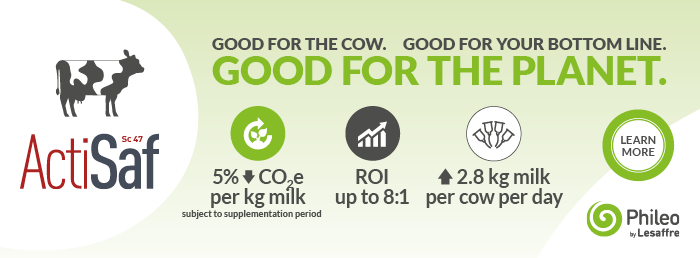
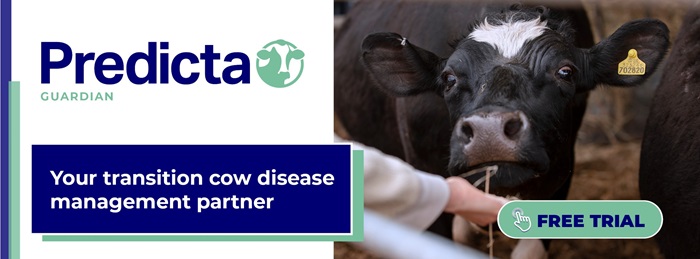
 The AHDB is recruiting for Council members for the Dairy sector. Lyndon Edwards AHDB Board Member & Sector Chair (Dairy) said "Working with the AHDB you won't just be helping fellow farmers produce dairy products and looking after the environment. You'll be shaping the future of our food production and leaving a legacy for the next generation."
The AHDB is recruiting for Council members for the Dairy sector. Lyndon Edwards AHDB Board Member & Sector Chair (Dairy) said "Working with the AHDB you won't just be helping fellow farmers produce dairy products and looking after the environment. You'll be shaping the future of our food production and leaving a legacy for the next generation."
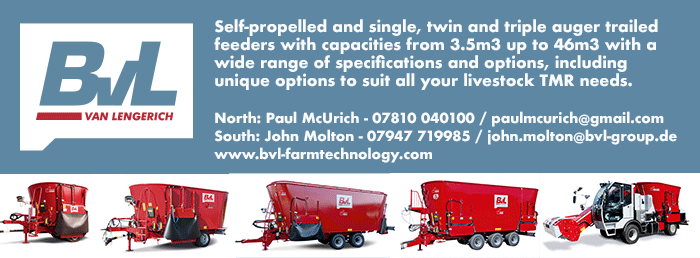

 Mars, Inc. revealed it is investing USD47 million in a sustainable dairy plan as part of its broader climate strategy, which totals USD1 billion over a span of three years. Mars shared it is working to reduce the carbon footprint of its dairy line with its climate-first approach to dairy sourcing, which it is calling "Moo'ving Dairy Forward." The commitment, highlighted by partnerships with FrieslandCampina and other companies, aligns with the company's goal to cut emissions by 50% by 2030, as measured against a 2015 baseline.
Mars, Inc. revealed it is investing USD47 million in a sustainable dairy plan as part of its broader climate strategy, which totals USD1 billion over a span of three years. Mars shared it is working to reduce the carbon footprint of its dairy line with its climate-first approach to dairy sourcing, which it is calling "Moo'ving Dairy Forward." The commitment, highlighted by partnerships with FrieslandCampina and other companies, aligns with the company's goal to cut emissions by 50% by 2030, as measured against a 2015 baseline.
 A superb 190-acre dairy farm in the Golden Vale represents a golden opportunity so it isn't any surprising that it is going up for public auction. The property is Clare House at Kilcolman near Newcastle West, County Limerick. GVM Auctioneers will be holding the auction at their premises on Glentworth Street in Limerick city centre on Wednesday, May 29. "It's a top-class farm that's been nurtured and developed over many years," said selling agent Tom Crosse. "It's an excellent platform for dairying, beef or equestrian enterprises.
A superb 190-acre dairy farm in the Golden Vale represents a golden opportunity so it isn't any surprising that it is going up for public auction. The property is Clare House at Kilcolman near Newcastle West, County Limerick. GVM Auctioneers will be holding the auction at their premises on Glentworth Street in Limerick city centre on Wednesday, May 29. "It's a top-class farm that's been nurtured and developed over many years," said selling agent Tom Crosse. "It's an excellent platform for dairying, beef or equestrian enterprises.

 The only way for the dairy industry to receive adequate pay for milk is cooperation, said Piena logistika dairy farmers' cooperative Janis Locmelis in an interview to LETA. He said the cooperative has more than 100 milk farms that produce 330 tonnes of milk every day. This amounts to 13-15% of the total volume of fresh milk in Latvia.
The only way for the dairy industry to receive adequate pay for milk is cooperation, said Piena logistika dairy farmers' cooperative Janis Locmelis in an interview to LETA. He said the cooperative has more than 100 milk farms that produce 330 tonnes of milk every day. This amounts to 13-15% of the total volume of fresh milk in Latvia.
